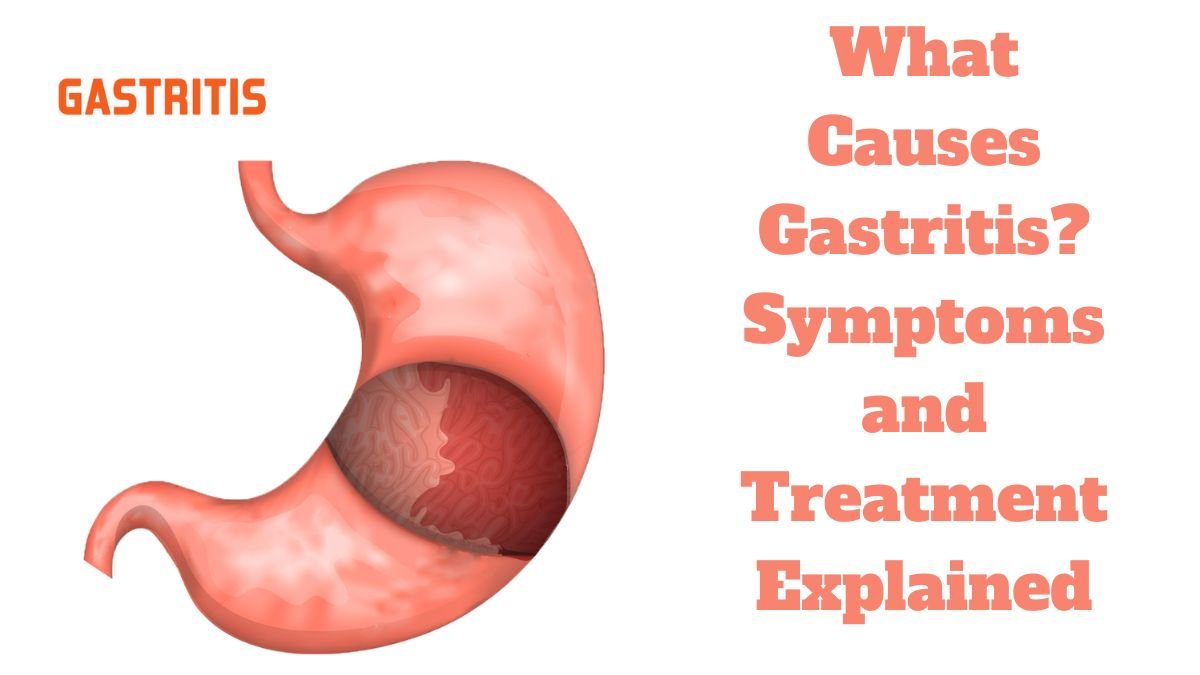The mucosa, the lining of our stomach, is a delicate tissue that protects the stomach from daily chemical, bacterial, and enzymatic attacks. When this lining is damaged or our immune system recognizes it as a threat, inflammation, or gastritis, occurs. This inflammation is a natural response of the body that helps fight infection and repair tissue.
Types of Gastritis
- Gastritis can be of several types, primarily acute and chronic.
- Acute gastritis: It occurs suddenly and is temporary. It is often caused by alcohol, drugs, or infectious agents.
- Chronic gastritis: It lasts for a long time and develops gradually. It is often associated with another chronic illness or infection with bacteria called H. pylori.
Gastritis can also be divided into more specific forms:
- Erosive gastritis: Sores or ulcers can form in the stomach lining. It’s often caused by acid, bile, alcohol, or certain medications.
- Non-erosive gastritis: This involves only irritation or redness of the stomach lining, but no sores. Over time, it can thin the stomach lining (atrophic gastritis) and cause digestive problems.
- Other types: infectious, drug-induced, alcohol-induced, stress-induced, autoimmune, and eosinophilic gastritis.
How common is gastritis?
Gastritis is very common. About 8 in 1,000 people in the United States experience acute gastritis. Chronic gastritis affects 2 in 10,000 people, but H. pylori infection may affect nearly half the population worldwide.
- Symptoms and Signs of Gastritis: Gastritis doesn’t always cause obvious symptoms. However, if symptoms do appear, they may be a sign of a serious or long-term condition.
- Common Symptoms: Loss of appetite or feeling full soon after eating
- Abdominal pain and bloating
- Nausea and/or vomiting
- If the ulcer is bleeding: Black blood in the stool (Melena)
- Black blood in the vomit (Coffee Ground Emesis)
- Gastritis Pain: Occurs in the epigastric region. It may feel like burning or a nagging sensation. Sometimes, eating relieves the pain.
Causes of Gastritis
Gastritis is a response of the body’s immune system, but its root cause can be different:
- Infections: Bacteria (H. pylori), viruses, parasites, and fungi.
- Acute infections often resolve on their own.
- Chemical causes: Alcohol, NSAIDs (such as aspirin, ibuprofen), and some recreational drugs.
- Chemical causes can cause erosive gastritis.
- Autoimmune diseases: The body’s immune system mistakenly attacks its own stomach lining.
- Can cause long-term inflammation.
- Reduced blood supply to the stomach: Major surgery, serious injury, or serious illness.
- The stomach lining becomes weakened and vulnerable to chemical attacks.
- Other causes: Radiation therapy, chemotherapy, bile reflux.
- Potential Complications of Gastritis
- Erosive Gastritis: Ulcers, Gastric Bleeding, Anemia
- Recurrent ulcers can cause scarring and narrowing of the stomach (Gastric Outlet Obstruction)
- In severe cases, a hole in the stomach (Gastrointestinal Perforation), Peritonitis, and Sepsis
Non-Erosive Gastritis:
- Gradual thinning of the stomach lining (Atrophy)
- Impaired absorption of nutrients (Iron, Folic Acid, Vitamin B12)
- Precancerous conditions (Gastric Intestinal Metaplasia) in the long term
Diagnosis of Gastritis
- Symptoms and History: Doctors suspect the disease based on symptoms and history.
- Imaging Tests: Upper GI Series, X-rays
- Endoscopy and Biopsy: Direct inspection and tissue sampling of the stomach lining.
- Other tests: Blood tests, stool tests, H. pylori breath test
Treatment and Management of Gastritis
- Acute gastritis: Usually resolves on its own once the cause is eliminated.
- Chronic gastritis: Treatment based on the cause, such as antibiotic treatment for H. pylori infection.
- Quick relief measures: OTC medications such as Proton Pump Inhibitors (PPIs)
- Medications that reduce acidity, such as Pepto Bismol®
- Stomach repair after the cause is removed
- Lifestyle tips: Reduce alcohol and NSAIDs
- Stress management, a light and balanced diet
- Regular doctor checkups
Conclusion
Gastritis isn’t just an inflammation of the stomach lining, it’s also a reflection of your digestive health and lifestyle. Early detection and treatment can help control it and prevent complications.
